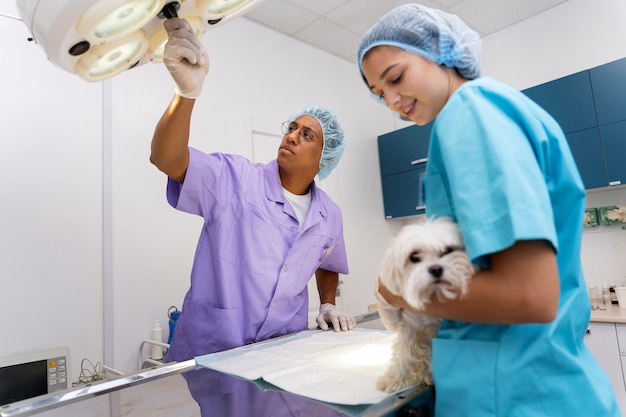Cancer Surgery: What Pet Owners Need to Know


Hearing that your beloved pet needs surgery to treat cancer can be overwhelming. It’s natural to feel a mix of emotions, from worry to hope. The good news is that cancer surgery can often improve your pet’s quality of life and even lead to a full recovery in some cases. At Townsgate Pet Hospital, we understand how important it is to make informed decisions about your pet’s health. Here’s everything you need to know about cancer surgery for pets, explained in simple, friendly terms.
Understanding Cancer Surgery for Pets
Cancer surgery is a common treatment option for pets diagnosed with tumors or cancerous growths. The goal is typically to remove the tumor and any surrounding tissue that might be affected, minimizing the risk of recurrence. Depending on the type, size, and location of the tumor, the surgery can range from minor to more complex.
It’s important to remember that your pet’s overall health and quality of life are always the top priorities. Surgery might be a standalone treatment or part of a larger plan that includes chemotherapy or radiation.
Preparing for Cancer Surgery
Preparation is key to ensuring the best outcome for your pet. Before surgery, your veterinarian will conduct a thorough examination, which may include bloodwork, X-rays, or ultrasounds, to assess your pet’s overall health and determine the best surgical approach.
At Townsgate Pet Hospital, we prioritize communication. You’ll have the chance to discuss your pet’s specific diagnosis, the details of the procedure, and any risks or potential complications. We’re here to answer your questions and guide you every step of the way.
What to Expect During Recovery
Recovery time can vary depending on the surgery’s complexity and your pet’s individual needs. Most pets will need a quiet, comfortable space to rest and recover at home. Your veterinarian will provide detailed post-operative care instructions, including guidelines for wound care, pain management, and activity restrictions.
Regular follow-up visits are an essential part of the recovery process. These appointments allow the veterinarian to monitor your pet’s healing and address any concerns. Be sure to keep an eye on your pet for signs of discomfort, such as excessive licking, swelling, or changes in appetite, and contact your vet if anything seems out of the ordinary.
The Role of Early Detection
Early detection is one of the most critical factors in successfully treating cancer in pets. Regular wellness exams, routine screenings, and being attentive to changes in your pet’s behavior or appearance can make a significant difference.
Common signs of cancer in pets include lumps or bumps, unexplained weight loss, changes in appetite, or persistent lameness. If you notice anything unusual, don’t wait—schedule a visit with your veterinarian right away.
How Townsgate Pet Hospital Can Help
At Townsgate Pet Hospital, we believe in a compassionate and comprehensive approach to cancer care. From diagnosis to post-surgical recovery, our team is committed to supporting you and your pet through every stage of the journey. We combine advanced veterinary medicine with a deep understanding of the emotional bond you share with your furry friend.
If your pet has been diagnosed with cancer, you’re not alone. Our team is here to provide expert care, answer your questions, and ensure your pet gets the best treatment possible.
Facing a cancer diagnosis for your pet can be tough, but you don’t have to navigate it alone. Schedule a consultation with the compassionate team at Townsgate Pet Hospital today by calling (805) 230-1999 or giving us a visit at 2806 Townsgate Road Suite C,Westlake Village, CA 91361. Let us help you and your furry companion every step of the way.



















